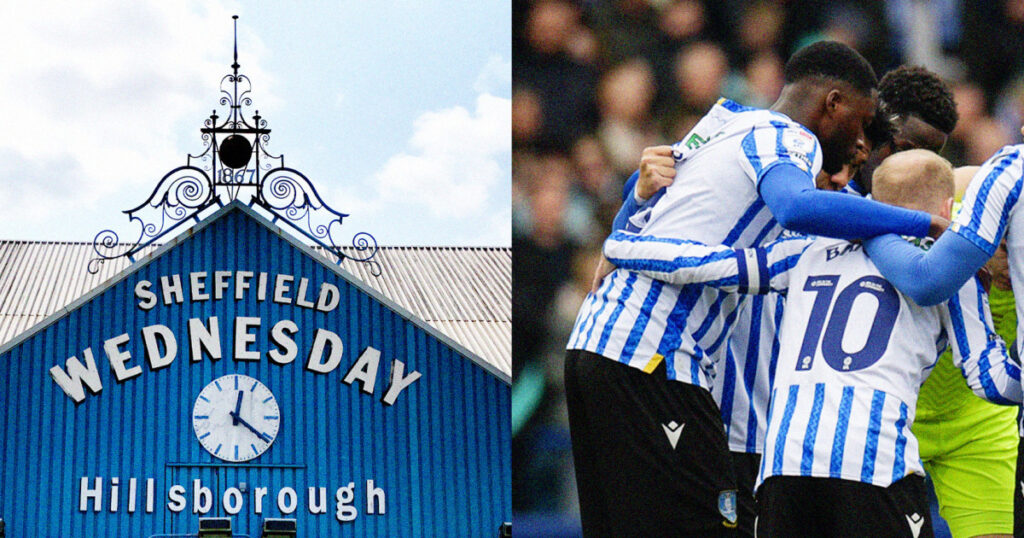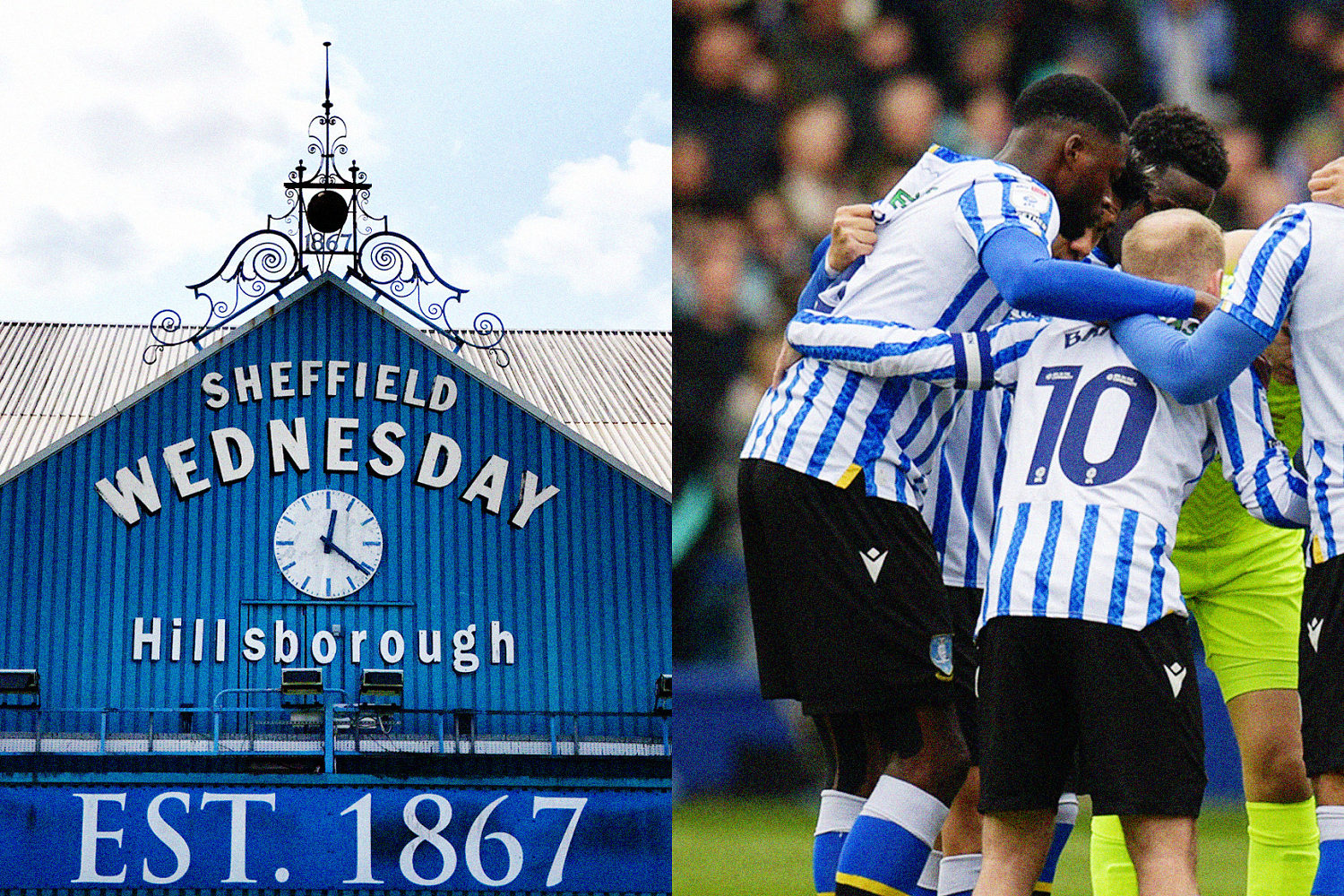

LONDON — One of the world’s oldest soccer teams is in big trouble.
When Sheffield Wednesday FC kicks off the new season on Sunday — away at Leicester City in the Championship, the second tier of British soccer — more than 3,000 traveling fans will not take their seats to cheer on their beloved team, known as the Owls.
Instead, they will hold a five-minute protest outside Leicester’s King Power Stadium against one man: Thai businessman Dejphon Chansiri, Wednesday’s owner and the focal point of a growing crisis that may threaten its very existence.
The team’s financial problems are mounting, and unsuccessful attempts to sell it have dominated local sports media and online forums for months — and the crisis has much wider implications for the health of English soccer away from the glitzy riches of Liverpool and Manchester City.
The problem is so acute that the British government has passed a new law that will launch a football regulator to police the buying and selling of teams and make sure owners are “fit and proper.”
For Wednesday, founded in 1867, that could be too little, too late.
Some teams have bad offseasons, but this summer has seen Wednesday set new levels of chaos: Players and staff have not been paid on time in four of the last five months. As a result, there’s a transfer embargo banning the club from buying new players until January 2027 — even if it could afford them.
At least 15 players have left on free transfers or for a fraction of their market value this summer, leaving barely enough players to fill a match day squad of 11 starters and up to nine substitutes.
“It’s becoming a soap opera,” said Dan Fudge, who co-hosts the popular podcast “The Wednesday Week.”
“Usually, as podcasters, we’re scratching for content to talk about during the summer,” Fudge said, “but we seem to have had a new timeline of terror every single week to talk about.”
The list of mishaps goes on. Talented young head coach Danny Rohl, a charismatic and cerebral German touted for big success in major European leagues, left by mutual agreement.
The famous old Hillsborough Stadium is literally falling apart — Sheffield City Council refused to grant a safety license for the vast 9,000-seat North Stand due to concerns of uncovering wiring and cracks in the terrace.
The club said in a statement this week it was working to fix this and would seek to place season ticket holders elsewhere if it was still shut by the first home game on Aug. 16. A disabled fan whose accessible seat is in the North Stand broke down in tears this week when telling the BBC what effect the crisis is having on him.
The club did not respond to NBC News’ request for comment.
Chansiri says he wants to sell, but no one so far has met his valuation for the club, which football finance experts say is too high. The owner is widely reported to have offered the club for 100 million pounds ($134 million). Kieran Maguire, a leading British football finance expert and commentator, puts the real value at 40 million pounds ($53 million), but Chansiri said in June that he rejected an offer at this price from a U.S.-based consortium.
Maguire said it was unlikely Wednesday would go bust entirely, but he said that in any case the team would almost certainly be relegated to the league below and face a very tough season.
“He’s not malicious in the sense that he doesn’t want to destroy the football club, but he’s very naive, has no knowledge of the industry,” Maguire said.
English football culture is one of spending. This summer alone, the 20 Premier League teams have spent around 1.8 billion pounds ($2.4 billion) on transfer fees, with reigning champions Liverpool splashing out 252 million pounds ($335 million).
And the contrast between the top and the rest of the football pyramid system is stark.
Between them, the Premier League clubs made more than 6 billion pounds ($8 billion) in revenue in the 2024-25 season, an increase of 36% from the previous year, according to consultancy firm Deloitte.
Meanwhile, every single team in the Championship, the fifth-most attended league in Europe, made an operating loss in the same period for the second season in a row.
There is money from TV, sponsorship, player sales and match day revenue, but with huge wage bills, clubs are left to rely on player sales and, if they’re lucky, wealthy benefactors to inject cash.
The English Football League said Wednesday it was in “advanced discussions” with Chansiri’s lawyers on how he will sell his stake in the club. The league, criticized by some fans for not acting sooner, warned the Thai magnate that the club needed to “meet its obligations or make good on his commitment to sell to a well-funded party, for fair market value.”
Could things even get worse? Probably.
This week, Morecambe FC, a team in the northwest seaside town of the same name, was suspended from the National League, the fifth tier of English football’s sprawling pyramid-shaped league system, with the elite clubs at the top and smaller, more parochial clubs toward the bottom.
Morecambe failed to meet its financial obligations, and if a new buyer who can support it can’t be found, it could disappear for good. This happened to Macclesfield Town, Bury, Hereford and a handful of other teams whose owners couldn’t support them and whose liabilities were too great.
“There’s a sense of foreboding about the club. We’ve seen other clubs do it, and normally at the eleventh hour someone comes in and [stages] a takeover,” Fudge said.
“Then, over recent years, you look at teams like Bury and what’s recently happened to Morecambe, and they’ve not had that white knight step in, and all of a sudden we’re thinking, ‘Oh hang on a minute, we could be the big scalp.’”
Like many fans, Fudge has no doubt who is to blame. “Pure ineptitude is how we’ve got here, regardless of the warning signs around Chansiri since about 2018.”
Fans warmly remember the 1990s, when players such as Chris Waddle, David Hirst and Des Walker — all England internationals — lined up alongside some of the then-hottest talent in Europe, helping the club reach seventh place in the Premier League during the 1996-97 season.
Fans were optimistic when Chansiri — a scion of Thai Union Group, a seafood conglomerate that owns the Chicken of the Sea canned tuna brand in the U.S. — took over in 2015. He promised and delivered some success, taking the team to the 2016 Championship playoff final, just 90 minutes away from a return to the Premier League.
All this feels like a long, long time ago, with fans wondering what shape the new football regulator will take and whether it will make any difference.
David Blunkett, a senior minister during Tony Blair’s government in the 1990s and 2000s and now a member of the House of Lords, is a lifelong Wednesday fan and attended an online meeting with the football league on Thursday. He said it was “vital” that the crisis at Wednesday is addressed before the regulator is set up.
“Parliamentarians, including those representing the city, the Supporters’ Trust and other fans will clearly continue to pressurize for an immediate resolution of the crisis at Hillsborough,” he told NBC News.
Hailing from the north side of Sheffield in South Yorkshire, a city famous for its steel, Wednesday became an early member of the Football Association (the term “soccer” is an abbreviation of “association”), as the football craze swept through working-class communities across the North and the Midlands.
The team got its unique name from cricket: In the mid-19th century, there were multiple teams in Sheffield playing this game, and the one that played on Wednesdays started a football team. The name stuck.
On Sunday, fans will raise banners and shout slogans in an attempt to preserve that history. Even if some would rather just watch the game.
“There’s a lot of people that are very much in the camp of ‘Let’s protest, let’s get this message out as much as we can,’ which I completely agree with, but it’s not everybody’s bag, because a lot of people use the football to spend time with their family and their friends,” Fudge said.
Despite the turmoil at the club, Wednesday sold out its allocation of 3,287 away tickets for Sunday’s game. It’s not immediately clear how many more Wednesday games there will be.
 Latest World Breaking News Online News Portal
Latest World Breaking News Online News Portal






